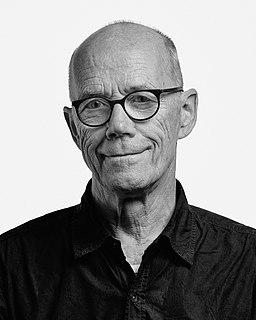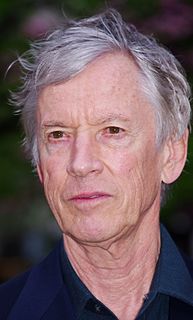A Quote by Clayton Christensen
If I know what to spec, and I can measure it, and there are no unpredictable interdependencies between what you do and what I must do in response, then an economist would say that is sufficient information for a market to emerge between you and me.
Related Quotes
If the intensity of the material world is plotted along the horizontal axis, and the response of the human mind is on the vertical, the relation between the two is represented by the logarithmic curve. Could this rule provide a clue to the relationship between the objective measure of information, and our subjective perception of it?
The decision must be made between Judaism and Christianity, between business and culture, between male and female, between the race and the individual, between unworhtiness and worth, between the earthly and the higher life, between negation and God-like. Mankind has the choice to make. There are only two poles, and there is no middle way.
The most important feature of an information economy, in which information is defined as surprise, is the overthrow, not the attainment, of equilibrium. The science that we have come to know as information theory establishes the supremacy of the entrepreneur because it appreciates the powerful connection between destruction and what Schumpeter described as "creative destruction," between chaos and creativity.
Data isn't information. ... Information, unlike data, is useful. While there's a gulf between data and information, there's a wide ocean between information and knowledge. What turns the gears in our brains isn't information, but ideas, inventions, and inspiration. Knowledge-not information-implies understanding. And beyond knowledge lies what we should be seeking: wisdom.
But the frightening aspect is that it's part of a larger effort from the Pentagon to tear down the wall between public affairs and propaganda, and essentially say there is no difference between information operations, public affairs and psychological operations. It's all one and the same. They have a new name for that too, it's called Information Engagement.
These days, information is a commodity being sold. And designers-including the newly defined subset of information designers and information architects-have a responsible role to play. We are interpreters, not merely translators, between sender and receiver. What we say and how we say it makes a difference. If we want to speak to people, we need to know their language. In order to design for understanding, we need to understand design.
In my opinion, the greatest misconception about the market is the idea that if you buy and hold stocks for long periods of time, you'll always make money. Let me give you some specific examples. Anyone who bought the stock market at any time between the 1896 low and the 1932 low would have lost money. In other words, there's a 36 year period in which a buy-and-hold strategy would have lost money. As a more modern example, anyone who bought the market at any time between the 1962 low and the 1974 low would have lost money.
You write a spec, and you pour your heart and soul and life into a spec, and you think that spec is the movie that's going to sell and get made... I've never heard of anybody that happened to. What happens is, you write a spec, people get it, they see your writing, they see you're good, they bring you into their office and they say, "Boy, that spec was really good - we'll never make that in a million years. We have rights to the board game of Monopoly. What do you think about a Monopoly movie?".
Mothers know the difference between a broth and a consommé. And the difference between damask and chintz. And the difference between vinyl and Naugahyde. And the difference between a house and a home. And the difference between a romantic and a stalker. And the difference between a rock and a hard place.


































